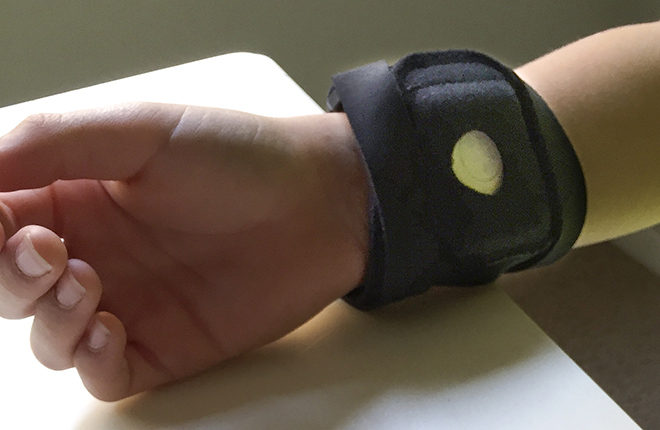Children's Eating Habits, the Brain, and Obesity
In the past 30 years, obesity has more than doubled in U.S. children and quadrupled in adolescents. In 6- to 11-year-old children, obesity increased from 7 percent in 1980 to 18 percent in 2012, according to the U.S. Centers for Disease Control and Prevention.
Past research has shown a link between unhealthy eating behaviors, obesity, and decreased mental skills coordinated in the brain’s frontal lobe in older children and adults. However, little is known about this connection in younger children during a time when these brain-based skills—referred to here as “cognitive control”—are rapidly developing.
Cognitive control includes abilities such as decisionmaking, planning, organization, memory, time management, maintaining emotional and self-control, and curbing inappropriate behavior.
Scientists at the Agricultural Research Service’s Western Human Nutrition Research Center (WHNRC) in Davis, California, are studying how stress and emotions shape behavior patterns in people. They have found, for the first time, a direct relationship between experiencing an emotional state (positive or negative) and snacking in 3- to 6-year-olds. They also found that cognitive control is significantly associated with the relationship between overeating and emotions.
When people are experiencing stress, these feelings can affect or bias their emotional-based behaviors and diminish their ability to make thoughtful or considerate decisions. The part of the brain that allows us to have self-control and inhibit certain emotionally noticeable behaviors, such as those often induced by stress, is developing very rapidly in very young people like preschoolers, says nutritionist Kevin Laugero, who is in the WHNRC Obesity and Metabolism Research Unit.
Understanding the relationship between eating behaviors and cognitive control may lead to preventive methods to help control obesity, Laugero adds.
In an observational study, Laugero and Joy Rickman Pieper, a University of California-Davis (UCD) doctoral student at the time, conducted several experiments to examine the balance between emotional state, snacking, and cognitive control in preschool children. At a preschool situated on the UCD campus, they measured cognitive control in 3- to 6-year-olds through computerized and hands-on tasks, parent questionnaires, and standardized teacher reports.
In one experiment, children were offered rewards of candies, pennies, or stickers. They had a choice of getting one item immediately or up to six items the longer they waited. “The more likely they were to delay the immediate gratification of one item and wait for more items suggests a higher degree of cognitive control,” Laugero says.
The study also examined children’s emotions as a potential factor for overeating. A wristwatch-like device worn by the children measured activity in their sweat glands. Sweat gland activity fluctuated with the children’s state of emotion. After snack time, 31 children were asked individually to assess their fullness based on stick figures depicting an empty, half-full, or full stomach. Children who indicated they were full were then seated at a table that had more snacks on it and were given 5 minutes to color. These “full” children were told that they could have as many snacks as they liked.
“In the children with lower cognitive control scores, the more emotions they experienced while sitting at the table, the more snacks they consumed,” Laugero says. “This did not occur in children with higher cognitive control scores.”
These findings suggest that, even at a very young age, children with lower cognitive control skills may be more likely to engage in emotional-based eating, whereas children with higher cognitive control skills are less likely to habitually engage in this type of behavior. This knowledge may facilitate development of healthier eating habits later in life, Laugero says.
“Emotional eating and cognitive control both develop rapidly; therefore, preschool ages may be best for some kind of anti-obesity intervention,” Laugero adds. “However, further studies are needed.”
“Our idea would be to develop or apply an existing intervention aimed at improving cognitive control during the preschool years,” Laugero says. “Researchers could then test whether such an intervention promotes healthier eating habits, including less emotional overeating, later in life.”—By Sandra Avant, Agricultural Research Service Information Staff.
“Children's Eating Habits, the Brain, and Obesity” was published in the November 2015 issue of AgResearch Magazine.
Key Facts
- Obesity in children has doubled in the past 30 years.
- Links exist between eating habits, cognitive control, and obesity.
- Snacking and emotional arousal are related in 3- to 6-year-olds.
- Children with lower cognitive control tend to overeat.
- Anti-obesity intervention may be possible for young children.
Full Story







